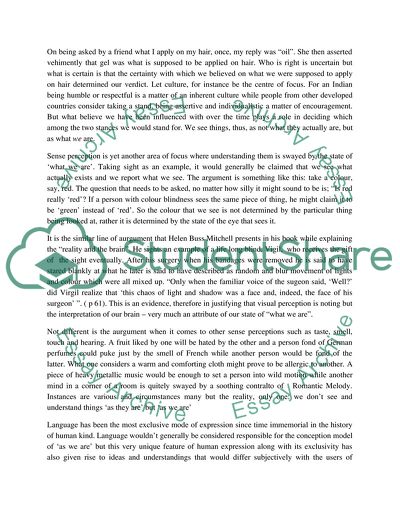Cite this document
(“An Introduction to the Theory of Knowledge Essay”, n.d.)
An Introduction to the Theory of Knowledge Essay. Retrieved from https://studentshare.org/philosophy/1555925-we-see-and-understand-things-not-as-they-are-but-as-we-are-discuss-this-claim-in-relation-to-emotion-reason-language-and-sense-perception
An Introduction to the Theory of Knowledge Essay. Retrieved from https://studentshare.org/philosophy/1555925-we-see-and-understand-things-not-as-they-are-but-as-we-are-discuss-this-claim-in-relation-to-emotion-reason-language-and-sense-perception
(An Introduction to the Theory of Knowledge Essay)
An Introduction to the Theory of Knowledge Essay. https://studentshare.org/philosophy/1555925-we-see-and-understand-things-not-as-they-are-but-as-we-are-discuss-this-claim-in-relation-to-emotion-reason-language-and-sense-perception.
An Introduction to the Theory of Knowledge Essay. https://studentshare.org/philosophy/1555925-we-see-and-understand-things-not-as-they-are-but-as-we-are-discuss-this-claim-in-relation-to-emotion-reason-language-and-sense-perception.
“An Introduction to the Theory of Knowledge Essay”, n.d. https://studentshare.org/philosophy/1555925-we-see-and-understand-things-not-as-they-are-but-as-we-are-discuss-this-claim-in-relation-to-emotion-reason-language-and-sense-perception.


